Review of the Day: West of the Moon by Margi Preus
 West of the Moon
West of the Moon
By Margi Preus
Amulet Books (an imprint of Abrams)
$16.95
ISBN: 978-1-4197-0896-1
Ages 10 and up
On shelves now.
These are dark times for children’s literature. Pick up a book for the 9-12 year-old set and you just don’t know what you’re going to find. Whether it’s the murderous foliage of The Night Gardener, the implications of Nightingale’s Nest, or the serious subject matter of The Red Pencil, 2014 is probably best described as the year everything went dark. Don’t expect West of the Moon to lighten the mood any either. Like those books I just mentioned, it’s amazing. Dark and resilient with a core theme that simply cannot be ignored. Yet for all that Preus has tapped into a bit of harsh reality with her title that may give pause to all but the stoutest hearts. Fortunately, she tempers this reality with an artist’s license. With folktales and beautifully written prose. With a deep sisterly bond, and a serious consideration of what is right and what wrong and what is necessary in desperate circumstances. I don’t expect everyone to read this book and instantly love it, but I do expect people to read it. Slow to start, smart when it continues, and unlike anything you’ve ever really read before.
“Now I know how much I’m worth: not as much as Jesus, who I’m told was sold for thirty pieces of silver. I am worth two silver coins and a haunch of goat.” That’s Astri, discussing the fact that her aunt and uncle have just essentially sold her to Svaalberd, the local goat herder. Though she is loathe to go, she knows that she has little choice in the matter, and must leave her little sister behind with her foul relatives. Svaalberd turns out to be even fouler, however, and as she plans her escape Astri hits up on the idea of leaving Norway and going to America. With time and opportunity she makes good her plans, taking little sister Greta with her, protecting the both of them, and making difficult choices every step of the way.
ADVERTISEMENT
ADVERTISEMENT
I’ll just give away the game right from the start and confess to you that I’m a big time fan of this book. It’s sort of a brilliant combination of realism with folktales and writing that just cuts to the heart thanks to a heroine who is not entirely commendable (a rarity in this day and age). But I also experienced a very personal reaction to the book that as much to do with Preus’s extensive Author’s Note as anything else. You see, my own great-great-grandfather immigrated to America around the same time as Ms. Preus’s great-great-grandparents (the people who provided much of the inspiration for this book). I’ve always rather loved knowing about this fellow since most of the immigrants in my family disappeared into the past without so much as a blip. This guy we actually have photographs of. Why he left had as much to do with his abusive father as anything else, but I never really understood the true impetus behind leaving an entire country. Then I read the Author’s Note and learned about this “America fever” that spread through Norway and enticed people to leave and move to the States. It gives my own family history a bit of context I’ve always lacked and for that I thank Ms. Preus profusely.
On top of that, she provides a bit of context to the immigrant historical experience that we almost never see. We always hear about immigrants coming to America but have we ever seen a true accounting of how much food and staples they were told to bring for the boat trip? I sure as heck hadn’t! You can study Ellis Island all the livelong day but until you read about the 24 pounds of meat and the small keg of kerring folks were asked to bring, you don’t really understand what they were up against.
It should surprise no one when I say that Preus is also just a beautiful writer. I mean, she is a Newbery Honor winner after all. Still, I feel I was unprepared for the book’s great use of symbolism. Take, for example, the fact that the name of the girl that gives Astri such a hard time is “Grace”. And then there’s the fact that Preus does such interesting things with the narrative. For example she’ll mention a spell she observed Svaalberd reciting and then follow that fact up with a quick, “I’ll thank you to keep that to yourself.” You’re never quite certain whom she is addressing. The reader, obviously, but anyone else? In her Author’s Note Ms. Preus mentions that much of the book was inspired, sometimes directly, by her great-great-grandmother Linka’s diary. Knowing this, the book takes on the feel of a kind of confessional. I don’t know whom exactly Astri is confessing to, but it feels right. Plus, it turns out that she has a LOT to confess.
As characters go, Astri is a bit of a remarkable protagonist. Have you read Harriet the Spy recently? See, back in the day authors weren’t afraid to write unsympathetic main characters. People that you rooted for, but didn’t particularly like. But recent children’s literature shies away from that type. Our protagonists are inevitably stouthearted and true and if they do have flaws then they work through them in a healthy all-American kind of way. Astri’s different. When she recounts her flaws they take on the feeling of a folktale (“I’ve stolen the gold and hacked off the fingers and snitched the soap and swiped the wedding food. I’ve lied to my own little sister and left Spinning Girl behind, and now I’m stealing the horse, saddle, and bridle from the farm boy who never did anything wrong except display a bit of greed.”) But hey, she’s honest! This section is then followed with thoughts on what makes a person bad. Does desperation counteract sin? How do you gauge individual sins?
If I’ve noted any kind of a theme in my middle grade children’s literature this year (aside from the darkness I alluded to in the opening paragraph) it’s a fascination with the relationship between lies and stories. Jonathan Auxier explored this idea to some extent in The Night Gardener, as did Jacqueline Woodson in Brown Girl Dreaming. Here, Preus returns to the notion of where stories stop and lies begin again and again. Says she at some point, “soon I’ve run out of golden thread with which to spin my pretty stories and I’m left with just the thin thread of truth.” Astri is constantly telling stories to Gerta, sometimes to coax her into something, sometimes to comfort her. But in her greatest hour of soul searching she wonders, “Is it a worse sin to lie to my sweet sister than to steal from a cruel master?” And where does lying start when storytelling ends? There are no easy answers to be found here. Just excellent questions.
So let’s talk attempted sexual assault in a work of children’s literature. Oh, it’s hardly uncommon. How many of us remember the reason that Julie in Julie of the Wolves ran away to join a furry pack? In the case of West of the Moon the attempt could be read any number of ways. Adults, for example, will know precisely what is going on. But kids? When Astri sees her bed for the first time she takes the precaution of grabbing the nearest knife and sticking it under her pillow. No fool she, and the act turns out to be a good piece of forethought since later in the book the goatman does indeed throw her onto her bed. She comes close to cutting his jugular and the incident passes (though he says quite clearly, “Come summer, we will go down to the church and have the parson marry us. Then I’ll take you to my bed.”). Reading the section it’s matter-of-fact. A realistic threat that comes and goes and will strike a chord with some readers instantly and others not at all. There will be kids that read the section and go to their parents or teachers (or even librarians) looking for some clarification, so adults who hand this to younger readers should be ready for uncomfortable questions. Is it inappropriate for kids? That is going to depend entirely on the kid. For some 9 and 10-year-olds there’s nothing here to raise an eyebrow. Astri hardly does. Later she hates the goatman far more for baby lambicide than any attempted rape. For others, they’ll not care for the content. Kids are great self-censors, though. They know what they can handle. I wouldn’t be worried on that score.
If we’re going to get to the heart of the matter, this book is about grace and forgiveness. It’s about how even victims (or maybe especially victims) are capable of terrible terrible things. It’s about making amends with the world and finding a way to forgive yourself and to move on. Astri is, as I’ve said before, not a saintly character. She steals and tricks good people for her own reasons and she leaves it to the reader to decide if she is worth forgiving. This is an ideal book discussion title, particularly when you weave in a discussion of the folktales, the notion of stories vs. lies, and the real world history. It’s not an easy book and it requires a little something extra on the part of the reader, but for those kids that demand a bit of a challenge and a book that’ll make ‘em stop and think for half a moment, you can’t do better. Remarkable.
On shelves now.
Source: Galley sent from publisher for review.
Like This? Then Try:
- The Sea of Trolls by Nancy Farmer – Few can weave folktales into text as well as Farmer, so naturally when I saw what Preus was doing here I thought of this epic series.
- The Carnivorous Carnival by Lemony Snicket – Because if anyone understands how to bring up the notion of whether or not sinking to the level of the bad guys makes YOU a bad guy, it’s Snicket. And this was the first book in A Series of Unfortunate Events to come up with the notion.
- The Night Gardener by Jonathan Auxier – These two books wouldn’t have a lot in common were it not for the fact that Auxier delves into the relationship between lies and stories as deeply as Preus and with similar conclusions.
Other Blog Reviews:
- Innovative Librarianship
- The Reading Hedgehog
- educating alice
- West Metro Mommy Reads
- Storytime Hooligans
- Waking Brain Cells
- Journey of a Bookseller
Professional Reviews:
- A star (one of five) from Kirkus
- A star from Publishers Weekly
- StarTribune
- The Buffalo News
Interviews: KUMD spoke with Ms. Preus about her books and her work on this one in particular here.
Book Jacket: Oo! In case you didn’t get to see the back cover . . .
Misc: For a look behind-the-scenes of the book check out this article Award-winning Duluth author pulls from folk tales, ancestral diary for newest novel from the Duluth News Tribune.
Videos: And here’s the book trailer!
West of the Moon / Margi Preus Book Trailer from Joellyn Rock on Vimeo.
Filed under: Best Books, Best Books of 2014, Reviews, Reviews 2014
About Betsy Bird
Betsy Bird is currently the Collection Development Manager of the Evanston Public Library system and a former Materials Specialist for New York Public Library. She has served on Newbery, written for Horn Book, and has done other lovely little things that she'd love to tell you about but that she's sure you'd find more interesting to hear of in person. Her opinions are her own and do not reflect those of EPL, SLJ, or any of the other acronyms you might be able to name. Follow her on Twitter: @fuseeight.
ADVERTISEMENT
ADVERTISEMENT
SLJ Blog Network
10 to Note: Winter Preview 2025
Kevin McCloskey on ‘Lefty’ | Review and Drawn Response
Notable NON-Newbery Winners: Waiting for Gold?
The Seven Bills That Will Safeguard the Future of School Librarianship
Take Five: Newbery Picks, Part Two
Gayle Forman Visits The Yarn!
ADVERTISEMENT


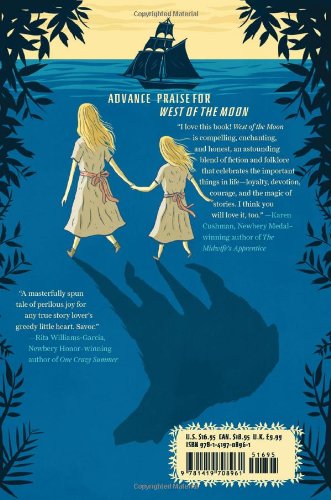

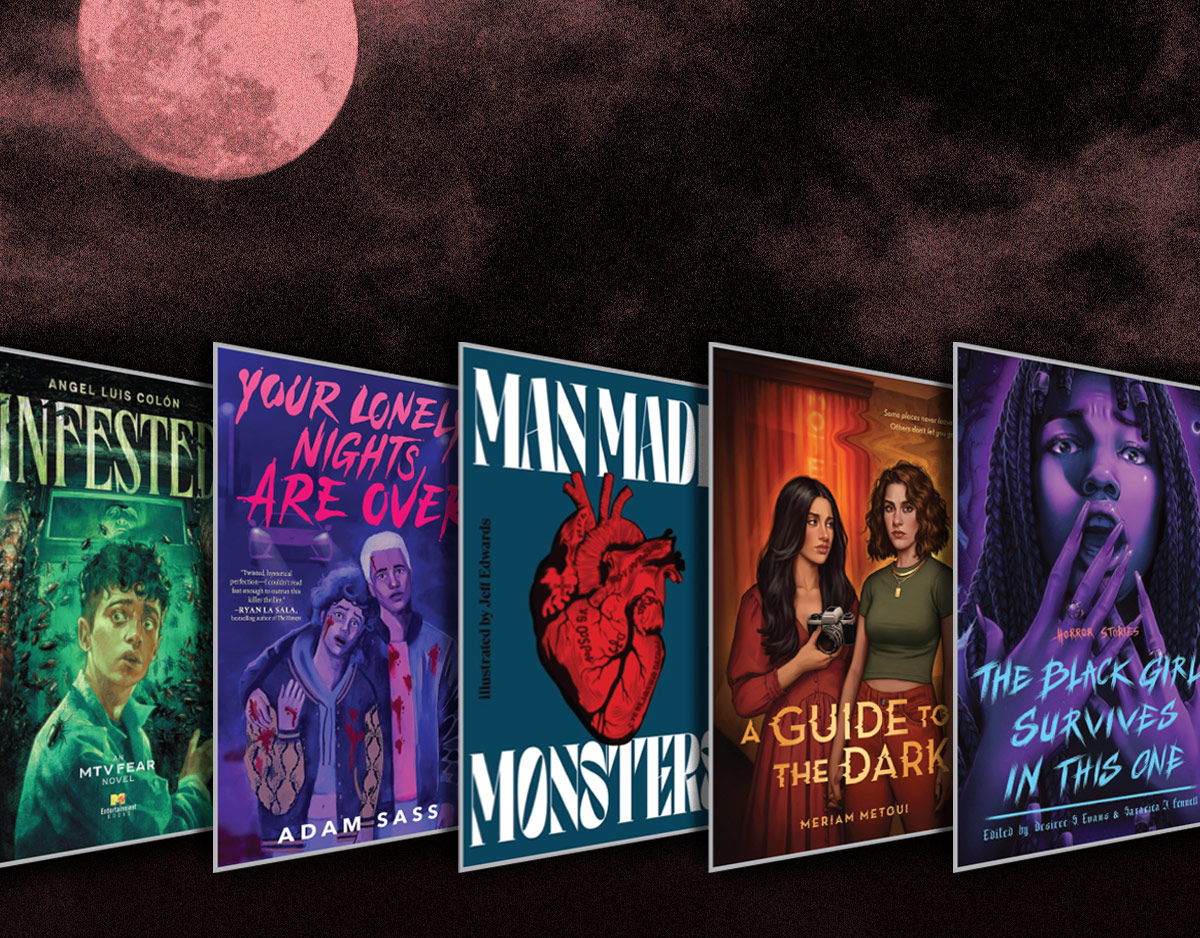
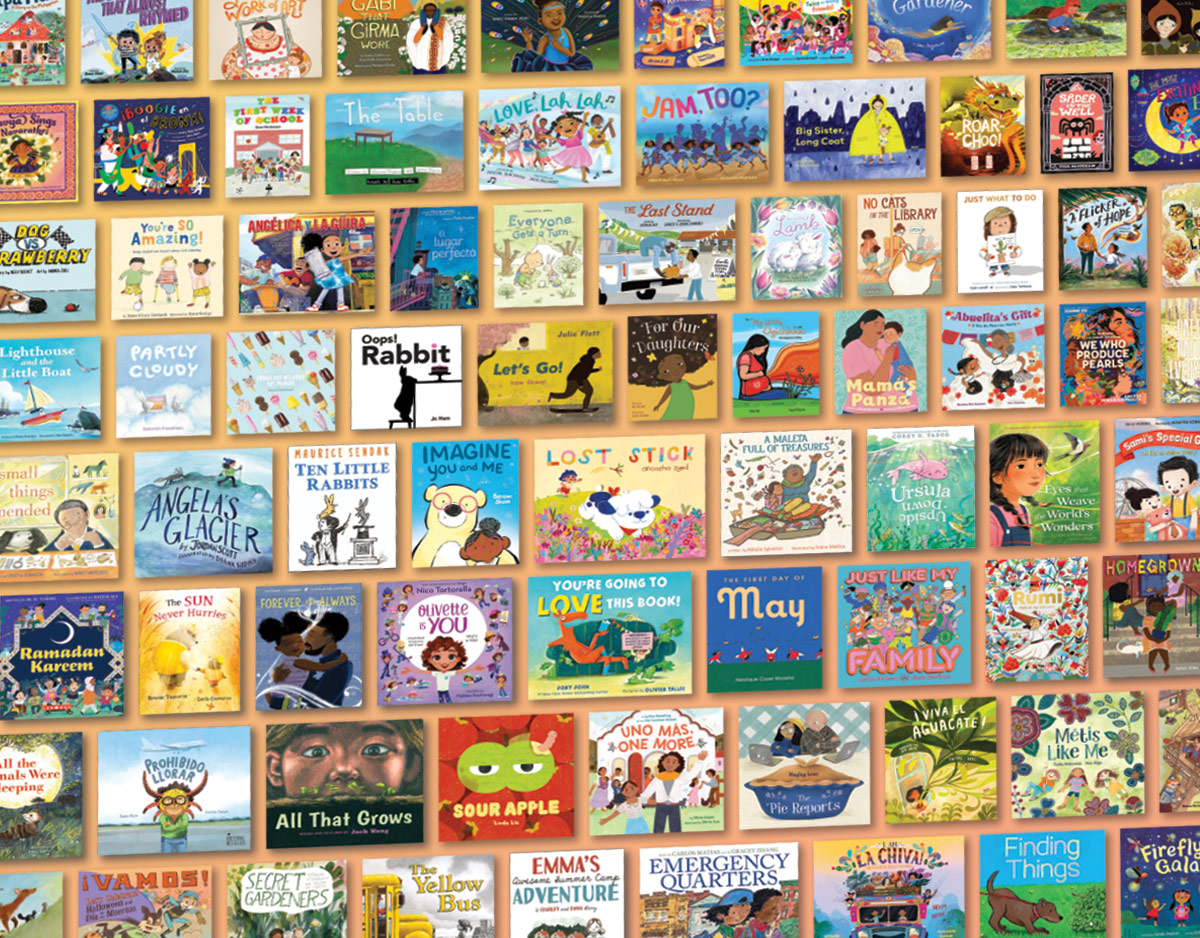
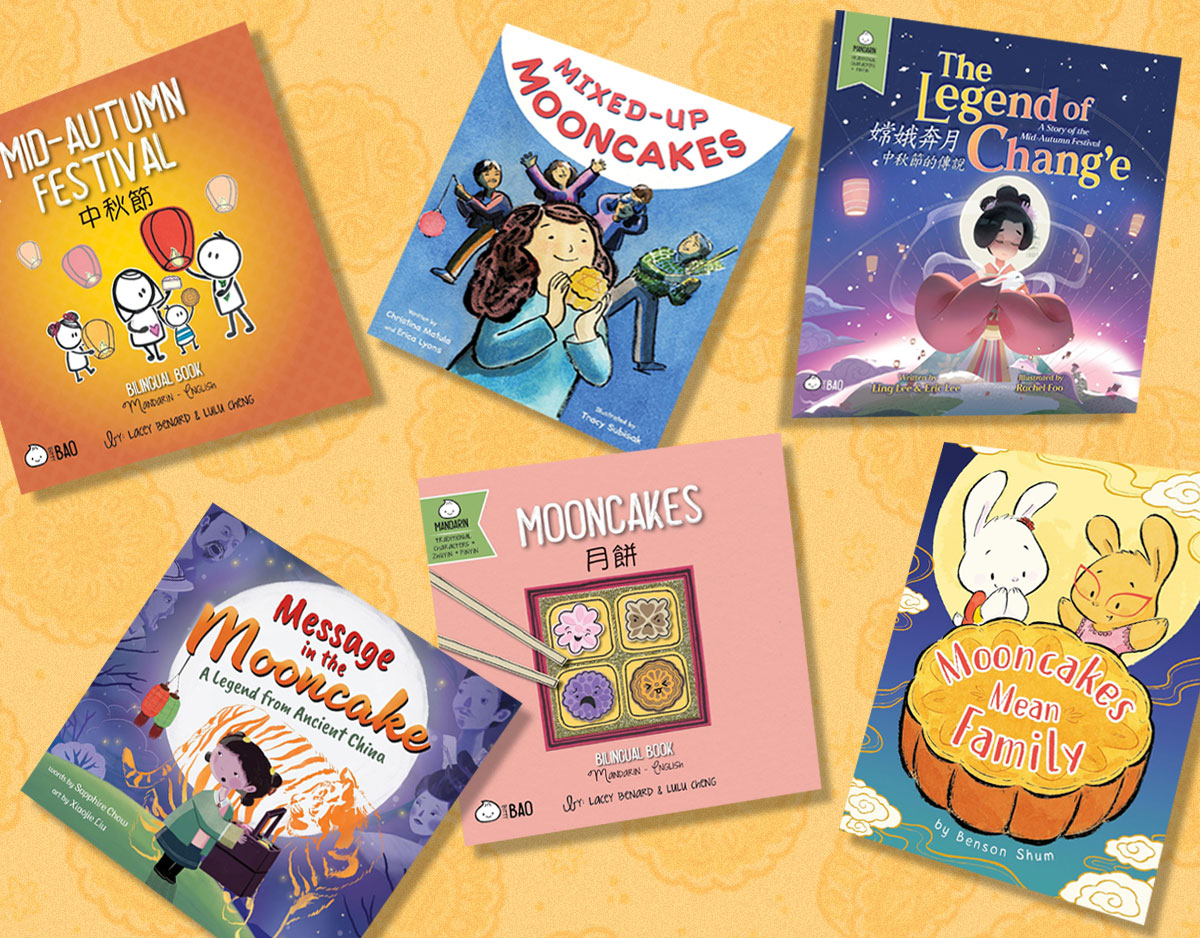
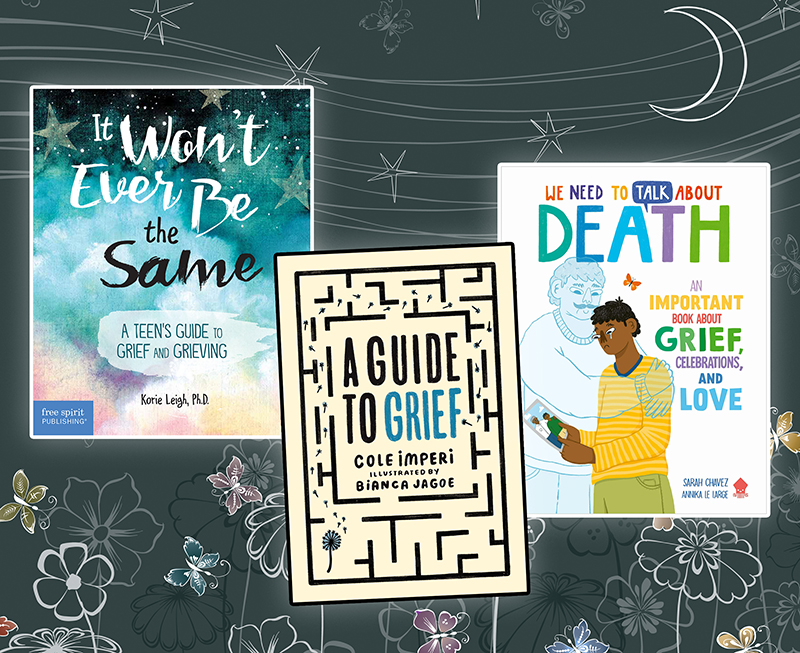

Speaking of dark–I’m still reeling from the dizzying, remarkable “The Riverman”.
I’m almost finished reading “West of the Moon”, and I really appreciate your insights. There is a lot going on for sure. I love the beautiful writing and the use of folk tales. A great book.
Riverman!! How could I fail to mention that? Of course I’ve come around to thinking that it was a bit more on the YA side. Doggone gunplay.
Oh, I reeeeaally need to read this now . . .
My copy will be at Monday’s list committee. Get it from Amie!
After reading and adoring Preus’s “Shadow on the Mountain” last year, I was surprised not to hear a single bit of buzz about it, especially since she’d snagged an honor a couple years before. Glad to see this one’s already on people’s radar. And so. excited. to read it.
I too read “Shadow On the Mountain” and liked it just fine. Still, I didn’t feel like it quite had that Preus oomph to it. This book does. Oomph and then some. Buzz it deserves.